

E-Books → Imperial Emotions Cultural Responses to Myths of Empire in Fin-de-Siècle Spain
Published by: voska89 on 22-02-2023, 22:51 |  0
0
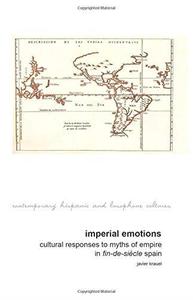
Imperial Emotions: Cultural Responses to Myths of Empire in Fin-de-Siècle Spain By Javier Krauel
2014 | 206 Pages | ISBN: 1846319765 | PDF | 2 MB
Imperial Emotionsreconsiders the historical legacy of Spain's empire by examining the role of emotions in mitigating it. Javier Krauel cogently argues that the fall of the Spanish empire in the late nineteenth century spurred a number of contradictory responses, ranging from mourning and melancholia to indignation, pride, and shame. He shows how intellectuals sought to reimagine a post-empire Spain by establishing attachments to imperial myths, which would have a profound impact not only on the collective memory of Spain but that of the Americas as well, where such emotional investments are still in conflict today.
E-Books → Imperial Inequalities The politics of economic governance across European empires
Published by: voska89 on 19-02-2023, 01:48 |  0
0
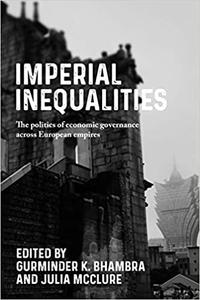
Gurminder Bhambra, "Imperial Inequalities: The politics of economic governance across European empires "
English | ISBN: 1526166143 | 2022 | 352 pages | PDF | 22 MB
Imperial Inequalities takes Western European empires and their legacies as the explicit starting point for discussion of issues of taxation and welfare. In doing so, it addresses the institutional and fiscal processes involved in modes of extraction, taxation, and the hierarchies of welfare distribution across Europe's global empires. The idea of 'imperial inequalities' provides a conceptual frame for thinking about the long-standing colonial histories that are responsible, at least in part, for the shape of present inequalities.
E-Books → A Family of Gods The Worship of the Imperial Family in the Latin West
Published by: voska89 on 18-02-2023, 23:05 |  0
0
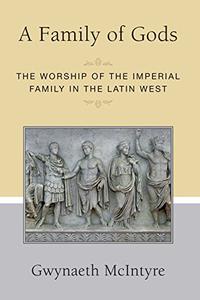
Gwynaeth McIntyre, "A Family of Gods: The Worship of the Imperial Family in the Latin West"
English | 2016 | ISBN: 0472130056 | EPUB | pages: 192 | 0.3 mb
Roman politics and religion were inherently linked as the Romans attempted to explain the world and their place within it. As Roman territory expanded and power became consolidated into the hands of one man, people throughout the empire sought to define their relationship with the emperor by granting honors to him. This collection of practices has been labeled "emperor worship" or "ruler cult," but this tells only half the story: imperial family members also became an important part of this construction of power and almost half of the individuals deified in Rome were wives, sisters, children, and other family members of the emperor.
E-Books → Voices of Komagata Maru Imperial Surveillance and Workers from Punjab in Bengal
Published by: voska89 on 13-02-2023, 19:27 |  0
0

Suchetana Chattopadhyay, "Voices of Komagata Maru: Imperial Surveillance and Workers from Punjab in Bengal"
English | 2019 | ISBN: 8193401581 | PDF | pages: 196 | 23.7 mb
Early twentieth-century Calcutta was not just a point of passage within the British Empire, but a key center of colonial power; a crucial laboratory of imperial repressive practices cultivated and applied elsewhere. Histories of the Komagata Maru or the Ghadar Movement offer rewarding perspectives on Punjabi Sikh migrants, but fail to adequately investigate why the ship was brought to Bengal; why overwhelming locally organized imperial vigilance was imposed on ships that arrived soon afterward; and the extent to which the operation of the repressive colonial state apparatus influenced the intersections of anticolonial strands in Calcutta and its surroundings during 1914-15.
E-Books → Alien Kind Foxes and Late Imperial Chinese Narrative
Published by: voska89 on 13-02-2023, 13:18 |  0
0
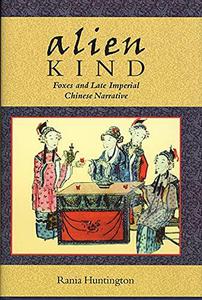
Alien Kind: Foxes and Late Imperial Chinese Narrative By Rania Huntington
2004 | 380 Pages | ISBN: 0674010949 | PDF | 84 MB
To discuss the supernatural in China is to talk of foxes and speak of ghosts. Ming and Qing China were well populated with foxes, shape-changing creatures who transgressed the boundaries of species, gender, and the metaphysical realm. In human form, foxes were both immoral succubi and good wives/good mothers, both tricksters and Confucian paragons. They were the most alien yet the most common of the strange creatures a human might encounter.Rania Huntington investigates a conception of one kind of alien and attempts to establish the boundaries of the human. As the most ambiguous alien in the late imperial Chinese imagination, the fox reveals which boundaries around the human and the ordinary were most frequently violated and, therefore, most jealously guarded.Each section of this book traces a particular boundary violated by the fox and examines how maneuvers across that boundary change over time: the narrative boundaries of genre and texts; domesticity and the outside world; chaos and order; the human and the non-human; class; gender; sexual relations; and the progression from animal to monster to transcendent. As middle creatures, foxes were morally ambivalent, endowed with superhuman but not quite divine powers; like humans, they occupied a middle space between the infernal and the celestial.
E-Books → Archaeologies of Empire Local Participants and Imperial Trajectories
Published by: voska89 on 11-02-2023, 21:30 |  0
0
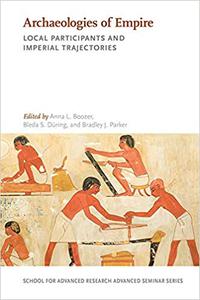
Anna L. Boozer, "Archaeologies of Empire: Local Participants and Imperial Trajectories "
English | ISBN: 0826361757 | 2020 | 344 pages | PDF | 11 MB
Throughout history, a large portion of the world's population has lived under imperial rule. Although scholars do not always agree on when and where the roots of imperialism lie, most would agree that imperial configurations have affected human history so profoundly that the legacy of ancient empires continues to structure the modern world in many ways. Empires are best described as heterogeneous and dynamic patchworks of imperial configurations in which imperial power was the outcome of the complex interaction between evolving colonial structures and various types of agents in highly contingent relationships. The goal of this volume is to harness the work of the "next generation" of empire scholars in order to foster new theoretical and methodological perspectives that are of relevance within and beyond archaeology and to foreground empires as a cross-cultural category. This book demonstrates how archaeological research can contribute to our conceptualization of empires across disciplinary boundaries.
E-Books → The Rise and Fall of Imperial China The Social Origins of State Development
Published by: voska89 on 3-02-2023, 01:16 |  0
0
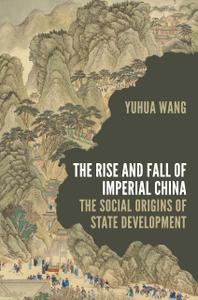
The Rise and Fall of Imperial China: The Social Origins of State Development (Princeton Studies in Contemporary China) by Yuhua Wang
English | October 11, 2022 | ISBN: 0691215170, 0691215162 | True EPUB/PDF | 352 pages | 33/21.6 MB
How social networks shaped the imperial Chinese state
E-Books → The Imperial Church Catholic Founding Fathers and United States Empire
Published by: voska89 on 3-02-2023, 01:13 |  0
0
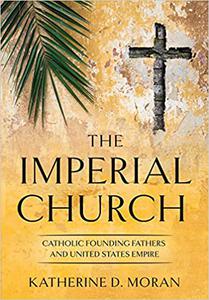
Katherine D. Moran, "The Imperial Church: Catholic Founding Fathers and United States Empire "
English | ISBN: 1501748815 | 2020 | 330 pages | EPUB | 32 MB
Through a fascinating discussion of religion's role in the rhetoric of American civilizing empire, The Imperial Church undertakes an exploration of how Catholic mission histories served as a useful reference for Americans narrating US settler colonialism on the North American continent and seeking to extend military, political, and cultural power around the world. Katherine D. Moran traces historical celebrations of Catholic missionary histories in the upper Midwest, Southern California, and the US colonial Philippines to demonstrate the improbable centrality of the Catholic missions to ostensibly Protestant imperial endeavors.
E-Books → Making the Imperial Nation Colonization, Politics, and English Identity, 1660-1700 [Audiobook]
Published by: voska89 on 1-02-2023, 04:45 |  0
0
![Making the Imperial Nation Colonization, Politics, and English Identity, 1660-1700 [Audiobook] Making the Imperial Nation Colonization, Politics, and English Identity, 1660-1700 [Audiobook]](https://i121.fastpic.org/big/2023/0131/3a/7323b8276924a623adb8dd2444d9b33a.jpeg)
Making the Imperial Nation: Colonization, Politics, and English Identity, 1660-1700 (Audiobook)
English | ASIN: B0BT2ZKKS1 | 2023 | 12 hours and 40 minutes | M4B@64 kbps | 358 MB
Author: Gabriel Glickman
Narrator: Derek Perkins
E-Books → The Empire of the Tetrarchs Imperial Pronouncements and Government, AD 284-324
Published by: voska89 on 22-01-2023, 21:18 |  0
0
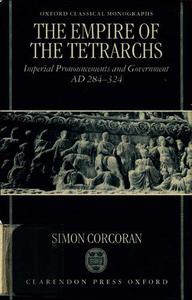
The Empire of the Tetrarchs: Imperial Pronouncements and Government, AD 284-324 By Simon Corcoran
1996 | 406 Pages | ISBN: 0198149840 | PDF | 22 MB
The era of Diocletian and Constantine is a significant period for the Roman empire, with far-reaching administrative changes that established the structure of government for three hundred years, and the time when the Christian Church passed from persecution to imperial favour. It is also a complex period of co-operation and rivalry between a number of co-emperors, the result of Diocletian's experiment of government by four rulers (the tetrarchs). This book examines imperial government at this crucial but often neglected period of transition, through a wide study of the pronouncements that the emperors and their officials produced, drawing together material from a wide variety of sources: the law codes, Christian authors, inscriptions, and papyri. The study covers the format, composition, and promulgation of documents, and includes chronological catalogues of imperial letters and edicts, as well as extended discussions of the Gregorian and Hermogenian Codes, and the ambitious Prices Edict. Much of this has had little detailed coverage in English before. There is also a chapter that elucidates the relative powers of the members of the imperial college. Finally, Dr Corcoran assesses how effectively the machinery of government really matched the ambitions of the emperors.



